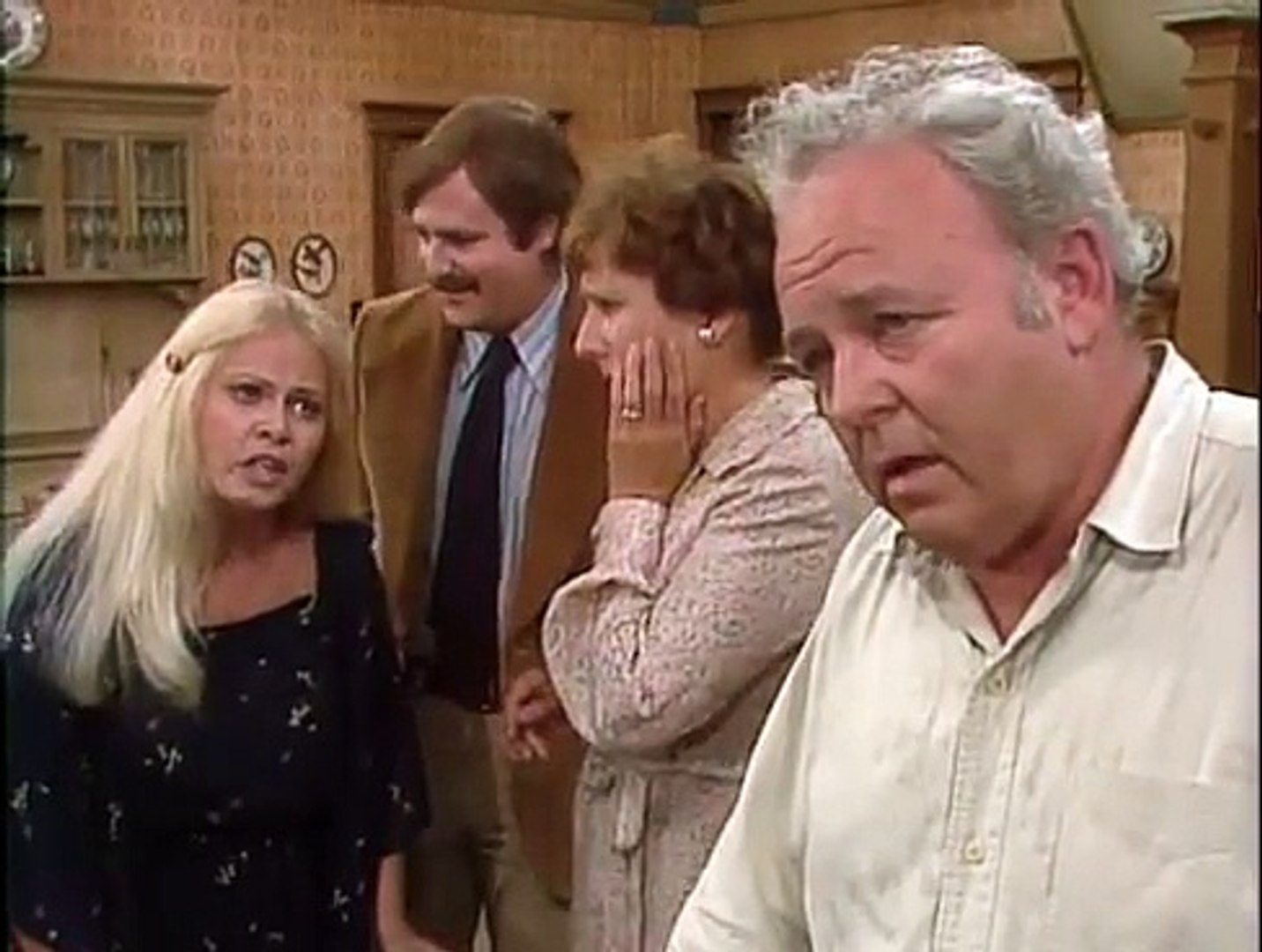
Introduction
All in the Family wasn’t just a sitcom; it was a cultural earthquake that shook the foundations of television in the 1970s. The show’s bold approach to taboo subjects like race, gender, and politics challenged traditional norms and often left viewers gasping in disbelief. In this article, we revisit the most controversial moments of All in the Family that turned heads, sparked debates, and forever changed the landscape of TV comedy.
1. Archie Bunker’s Racial Slurs: Breaking the Taboo
Perhaps the most controversial aspect of All in the Family was its portrayal of racism. The show’s main character, Archie Bunker, frequently used racial slurs and spouted bigoted views. While this would be considered unacceptable by today’s standards, All in the Family used Archie’s offensive language to expose the ugly reality of racism in America.
In one particularly shocking episode, Archie’s use of the N-word during a heated argument with his son-in-law Mike was both jarring and thought-provoking. The scene was a wake-up call for viewers, forcing them to reflect on how racism was still deeply ingrained in American society, even in 1971.
2. The “Meathead” Moment: Challenging Masculinity and Gender Roles
The relationship between Archie and his son-in-law Mike Stivic (aka “Meathead”) provided much of the show’s comedic tension, particularly when it came to the clash between traditional masculinity and the growing feminist movement. In one infamous episode, Mike challenges Archie’s view of a woman’s place in the family, declaring that he doesn’t believe a woman should be confined to the kitchen.
This was a radical concept for television at the time, where women were often depicted in traditional roles as housewives and mothers. Mike’s progressive views stood in stark contrast to Archie’s outdated notions, highlighting the shifting dynamics of gender roles in society. The episode forced viewers to question long-standing beliefs about masculinity, family, and power.
3. Edith’s Rape Episode: A Heart-Wrenching Moment of Brutality
In an episode titled “Edith’s 50th Birthday,” All in the Family took a shocking and harrowing turn when Edith Bunker was sexually assaulted. This storyline was incredibly controversial at the time, as rape was a subject rarely addressed on television, especially in such a direct and sensitive manner.
The episode didn’t just focus on the assault itself, but also the emotional aftermath, showing Edith’s trauma and the family’s struggle to support her. This raw, unflinching portrayal of rape was groundbreaking and opened up important discussions about sexual violence and the trauma it causes. Today, the episode is considered one of the most powerful and daring moments in television history.
4. The Death of a Loved One: A Family’s Raw Grief
One of the most poignant and controversial episodes of All in the Family centered on the death of Edith’s cousin. The Bunker family’s raw grief and emotional turmoil were laid bare, offering a stark and realistic portrayal of how families cope with loss.
The episode didn’t shy away from the discomfort that comes with death, exploring the different ways in which each family member reacts to the loss. It was a departure from the typical sitcom treatment of death, where characters might experience a few moments of sadness before returning to their usual antics. All in the Family approached grief with honesty and sensitivity, making it one of the most memorable and emotional moments of the series.
5. Political Parodies: Bringing Real Politics Into Comedy
Another controversial aspect of All in the Family was its willingness to engage with real-world politics. The show often mocked the political climate of the 1970s, with characters making pointed references to the Nixon administration, the Vietnam War, and the counterculture movement.
For example, the Bunker family’s lively discussions about Vietnam and civil rights offered a biting critique of American politics, allowing the show to make sharp political commentary while still providing laughs. By addressing these issues head-on, All in the Family made it clear that it wasn’t afraid to tackle the difficult topics of the day.
Conclusion: A Show That Changed TV Forever
The controversies surrounding All in the Family weren’t just for shock value—they were intentional and powerful. By pushing the boundaries of what was acceptable on television, the show forced audiences to confront difficult societal issues. The impact of these moments is still felt today, as All in the Family remains a groundbreaking series that set the stage for more socially-conscious TV shows in the years to come.
